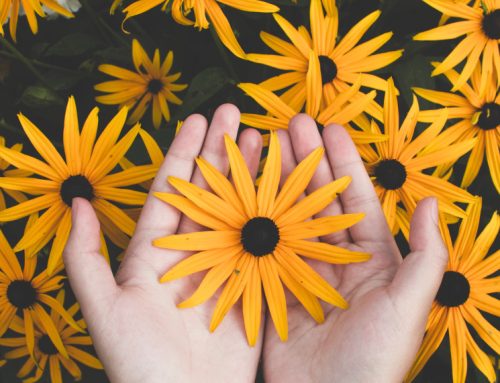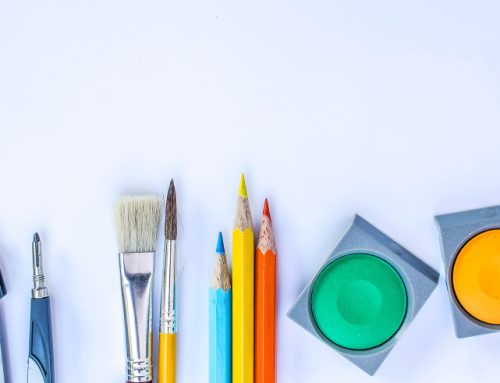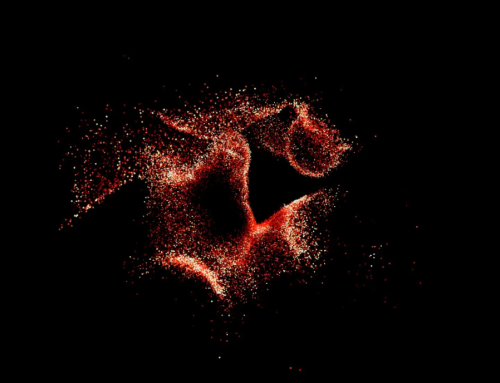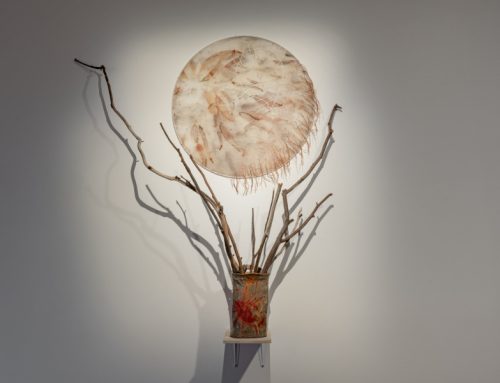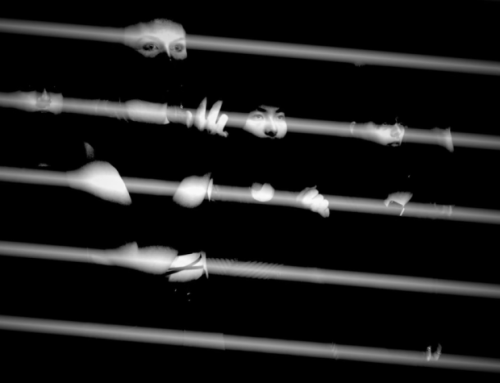Originally from Iraq, Nedhal now lives in Fairfield. She is a community leader and an artist and assists newly arrived refugee-background families who are new to Sydney. After suffering a car accident, Nedhal uses Art as her therapy: “Without art, I would not be able to cope” .
Everyone knows Nedhal in Fairfield. She has lived there for 15 years. She is a community leader and an artist. Originally from Iraq, Nedhal calls Australia home. She runs a women’s group and assists newly arrived refugee-background families who are new to Sydney.
In 2015, Nedhal was hit by a car while crossing a busy road. She flew over the bonnet and broke her hip. She was in hospital for four months. She couldn’t walk for the first year and didn’t get out of the house for two years. The fracture in her hip is still not healed.
While discussing her art for a project Finding Home, Nedhal shared how artistic practice makes her feel happy and positive. Art is her therapy and takes her mind off pain. She does art and craft for healing: rock and glass painting, collages, floral design, food art, soap carving, paper mâché, candle design, you name it. “Without art, I would not be able to cope” Nedhal says.
Trauma is a normal part of Nedhal’s life. She doesn’t sleep well, so she makes art to keep her mind focused on something else. She displays her creations all around her house. “I put all my suffering from pain and sleeplessness in beautiful pieces of art”.
“Art makes you focus on things in your hands, whether you’re working with clay or ceramics. This is what I have to do, for myself, for my family, my children, my grandchildren”.
She shared a 3D picture of a peacock.
Nedhal made this three years ago to welcome a group Yazidi Iraqis resettled to Wagga Wagga. The peacock is symbolic of the region where they were born. This was Nedhal’s first time painting with oil and acrylic. She tried to capture how these newcomers might feel. She said, “The suffering and the pain is the same, differences from before don’t matter anymore”.
Nedhal welcomes many people in her home, who support her art they and seek her advice. Her house and her art bring people together. It’s a way to bridge the gap across generations and remind younger generations about their culture and country.
“Art makes me patient. When you have to do very small, beautiful things and be precise, art calms you down when you’re angry”.
“When I make art, ideas come to me for options and solutions to help others, especially the women’s group. I make my talent work. It makes my mind work very well!”.
Nedhal hopes that other people who live with ‘permanent pain’ can feel inspired by her pain experience and turn their concerns into creative art.
*****
As an arts-based researcher, it is a privilege to relinquish the role of ‘question-asker’ and enter a space alongside co-researchers to listen intently to art-inspired stories of hope, trauma, and culture[1].
Arts-based methods can create a sense of sanctuary for refugee-background co-researchers. In a context where immigration policies are increasingly devoid of any sense of hospitality, arts-based approaches can alleviate the pressures of unrealistic expectations in terms of mental health, educational or employment outcomes as markers of ‘successful’ settlement.
By privileging culturally safe, trauma-informed approaches, arts-health collaborations can shift the ideological boundaries of knowledge and ways of knowing, just like the stories Nedhal shares about her art guide our understanding on what it’s like to live with pain and sleeplessness, and support loved ones and newcomers.
Arts-health research carves out spaces where creative forms of expression reflect precarious situations and narratives of strength and hope.
Caroline Lenette is the author of ‘Arts-based methods in refugee research: Creating sanctuary’ (2019).
[1] https://garlandmag.com/article/creating-sanctuary-through-beading/
By Caroline Lenette & Nedhal Amir

